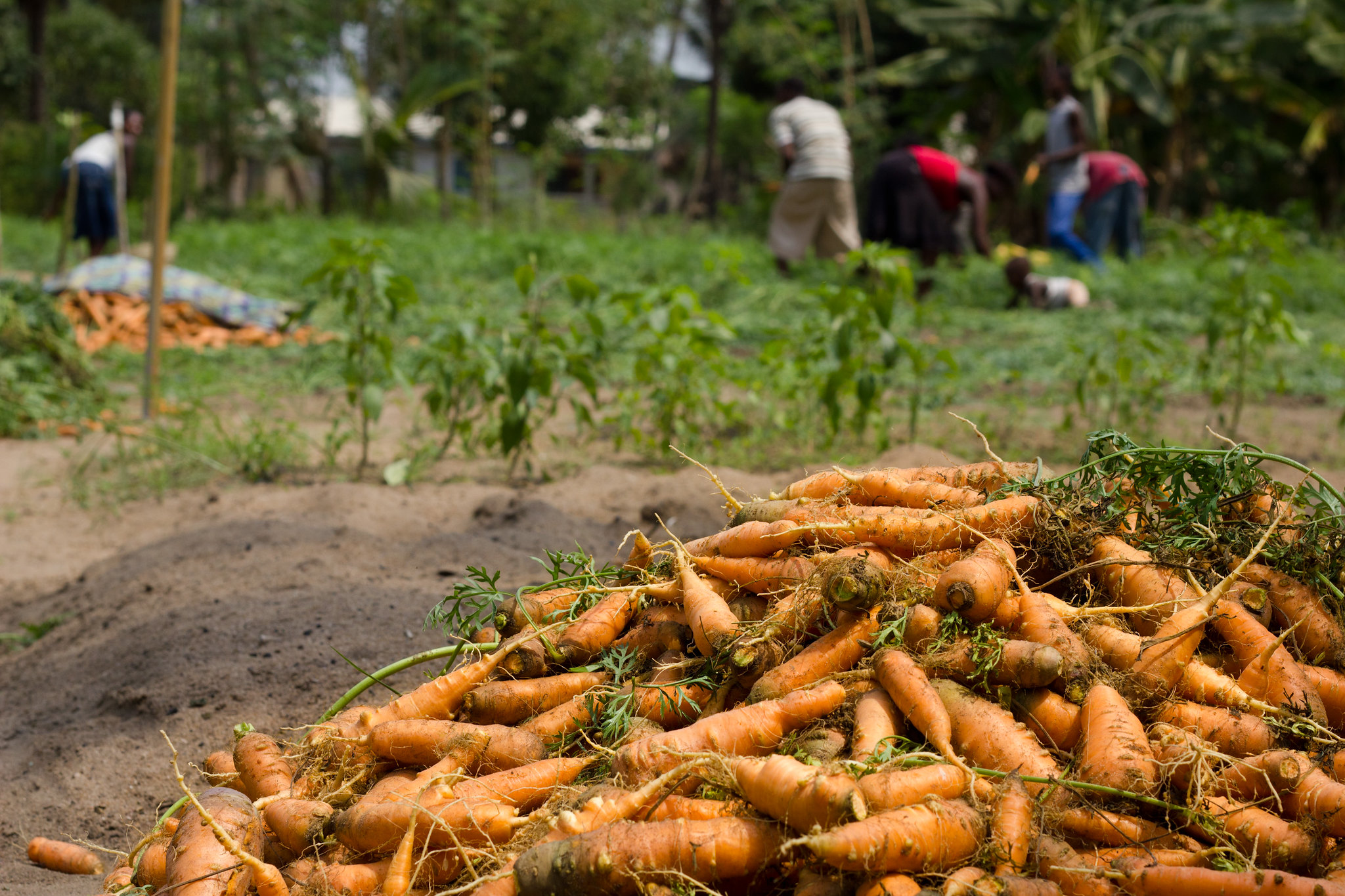Climate Resilient and Equitable Agricultural Transformation in Africa

Dr Stephen Whitfield shares his thoughts on the role of agriculture in the UNFCCC – the international environmental treaty to tackle climate change - and highlights the work being done at Leeds, and with partners across Africa, in supporting climate resilient and equitable agricultural transformation.
The transformation of global agriculture systems, both as a means of adapting to, and mitigating, climate change has risen up the UNFCCC agenda.
At COP26 the Subsidiary Bodies are reporting on the Koronivia Joint Work on Agriculture (KJWA) which explores the multifaceted role for agriculture within future climate action under the UNFCCC. Nations are also endorsing the Policy Action Agenda for Transition to Sustainable Food and Agriculture and the Global Action Agenda for Innovation in Agriculture, engaging in the FACT dialogue, making commitments on reducing deforestation, methane emissions and more… all of which put agriculture at the centre of climate action strategies.
I have heard said many times over the past two weeks, by seasoned COP delegates all too aware of its historical absence, ‘agriculture has arrived at COP26’.
The University of Leeds, in partnership with the Food, Agriculture and Natural Resources Policy Analysis Network (FANRPAN) and universities across Africa, collaborate on programmes that focus on the visioning and governance of food systems transformation for climate resilience.
The work that we are showcasing at COP26, and is introduced in this first video, starts from the understanding that transformation in agriculture and food systems, although necessary, can be, and has been, brought about through exclusionary processes and with inequitable outcomes. When we aim at transformation, it is imperative that we think through and address the justice implications of this.
A part of this challenge is co-developing and supporting climate resilient practices. Experience from a long history of agricultural development tells us that, in order to be successful, this must go further than just finding technological solutions. Projects in Ghana (led by the Kwame Nkrumah University of Science and Technology) and Nigeria (in partnership with Bayero University Kano) highlight, in different ways, the value of building on local knowledge and agro-ecological approaches, co-developing understandings of local contexts and challenges, and building local capacities for agricultural innovation.
Our agricultural systems are complex and diverse. People hold multiple perspectives and priorities when it comes to agricultural transformation. At a fundamental level, there is a need to represent and give a voice to the histories and complex intersectionalities that shape individuals’ experiences of, and perspectives on transformation.
This excerpt from a participatory video filmed by the people of Mangochi, Malawi comes from a project, led by PhD researcher Pierre Moorsom, aimed at giving a voice to multiple perspectives on transformation.
Our agriculture and food systems are also interconnected across sites and scales, and climate change impacts on these systems are highly variable and uncertain. In this context, there is a need for evidence-based debate across multiple stakeholders, around the risks and benefits associated with different pathways of agricultural and food systems transformation into the future. The GCRF-AFRICAP programme has developed the participatory iFEED framework, which is designed to provide an integrated evidence base (building on climate models and grounded research) for exploring alternative pathways and supporting cross-stakeholder dialogue.
The commitments being made around sustainable agricultural transformation at COP26 are an important starting point. If this is to translate into sustainable and equitable agricultural transformation in Africa, they need to materialise as effective support for inclusive innovation and knowledge sharing. There is a need for investment in creating and sustaining of platforms and for learning that brings together stakeholders from across systems and supply chains, to tell their stories and to collectively and inclusively envision and govern transformation.
To find out more, watch this discussion on promoting resilient agriculture in Africa, held during COP26 and featuring Stephen Whitfield.
Image: "Carrot harvest with subtle rebellion" by chadskeers is licensed under CC BY 2.0
